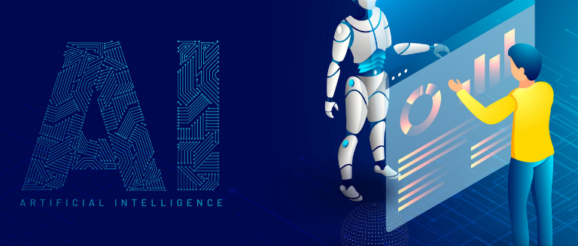How Does AI Impact Procurement? | CPO INNOVATION

In 2021, high-end organizations are experiencing monumental changes. While balancing between daily challenges, such as exchange rates or regulations, it seems that in the long-term they are exploring new models in accepting the “inevitable” transformation – Artificial Intelligence (AI). A well-known phenomenon that is hard to ignore and that often includes terms such as Machine Learning (ML), Natural Language Processing (NLP), and Robotic Process Automation (RPA).
Difference between RPA, NLP, ML & AI
RPA is a simpler type of software that imitates a task-related activity of a human within a process (e.g. log-in, copy/paste, field entry, etc.). NLP represents algorithms that can interpret, transform and generate human language. Machine Learning (ML) is more complex and its goal is to acquire knowledge (e.g. image/speech recognition, medical diagnosis, etc.). On the other hand, AI is driven by data, and it actually aims to become more intelligent, to simulate intelligence (good examples are Siri, Tesla, even Netflix).
Reasons for AI in procurement
Procurement itself is at the center of cost, quality, sustainability and risk, as well as the customer-employee-supplier loop. Therefore, it has a unique advantage and a huge reason for embracing upcoming transformations.
The most beneficial reasons include:
There are 7 cognitive capabilities that can provide high-end competitiveness to a company – spend management, fraud/audit management, supplier intel, supply risks and alert management, contract administration/compliance, price benchmarking/cost prediction, and buying assistance.
Still, AI is not a magic pill that can solve our procurement problems, as it requires active managerial inputs, expertise, guidance and oversight.
AI in strategic sourcing
Cognitive models can be helpful at identifying sourcing trends, based on the spend data development, procurement category, and early procurement supplier schemes in negotiations. For example, if a supplier is involved in more concepts and early start agreements, they will be able to anticipate the spending growth based on these trigger points. AI will help to identify these schemes.
AI in tactical sourcing
Cognitive models can help with identifying saving opportunities, where you can analyze your existing contracts and commercial data based on decisions that are made, and challenge it earlier in the supplier universe (like via Titan SIM), outlining possible alternative suppliers with the same expertise.
AI in procurement
Where cognitive models can be leveraged to automatically review and approve purchase orders up to certain thresholds. For example, from a preferred supplier only or a supplier with low-risk indications in certain spend categories.
At what point is it worthwhile for a company to adopt AI in procurement?
There are few aspects to consider before your company decides to embrace AI.
Many experts agree that the main one is the gap between your ambition and the actual execution. Generating value from AI is way more than just buying AI for a specific process. Its development involves a crucial understanding of algorithms, collecting and integrating company-specific data, and the overall supervision (which implies further management/leadership challenges and analysis).
Others include effort-return ratio in procuring processes, as well as time management-savings ratio.
Either way, AI will surely lift your company in many levels, while revealing more clean opportunities, as well as improving your overall brand.
Companies will adopt AI – not just because they can, but because they must.
Global spending on AI is projected to be more than $110 billion in 2024, with an annual growth of roughly 20%. According to the International Data Corporation (IDC), organizations will deploy AI as part of their efforts to remain competitive in the digital economy.
“Companies will adopt AI — not just because they can, but because they must,” said Ritu Jyoti, Program Vice President, Artificial Intelligence at IDC. He added, “AI is the technology that will help businesses to be agile, innovate, and scale.”
Do you agree that the A.I. can be decisive in developing a highly successful organization? Let me know your thoughts.
